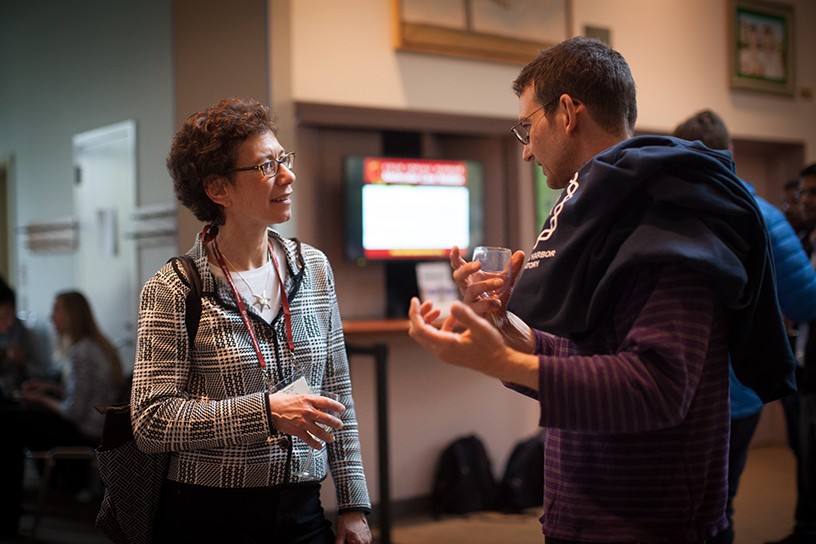This week, we hosted the ninth CSHL meeting on The Ubiquitin Family. This biennial meeting attracts molecular biologists who study a particular family of cellular proteins called ubiquitins. A great number of the meeting participants are junior scientists: In fact, 47% of this year's meeting are graduate students and postdocs, and 77% of them were selected to present a talk or a poster.
We checked in with Cynthia Wolberger, a CSHL meeting veteran and returning Ubiquitin Family meeting organizer, for a casual chat about the meeting and its role in the ubiquitin community.
We have an exciting mix of talks. From the very basic biochemistry and structure that explains the mechanism of how ubiquitin works, through its effects in live organisms, all the way through to drug discovery where people are finding novel ways of targeting these pathways and treating diseases such as autoimmune diseases and cancer. It’s very exciting to see the full range of all of that science presented together.
The other always exciting thing to see is the junior investigators. Graduate students, postdocs, people about to transition to become new assistant professors, presenting their work, doing such a FANTASTIC job. And watching as the next generation of investigators in this field go off and become independent.
I look at some of them sometimes and marvel at the work they’ve done and I think, “I didn’t do anything close to that important or groundbreaking when I first started out!” But so much more is possible now.
For more on Cynthia and her work, visit her lab's website.
For more conversations with our other meeting organizers and course instructors, go here. Also, to gain a meeting-goer's perspective on this meeting, read our Q&A with Judy Ronau.

